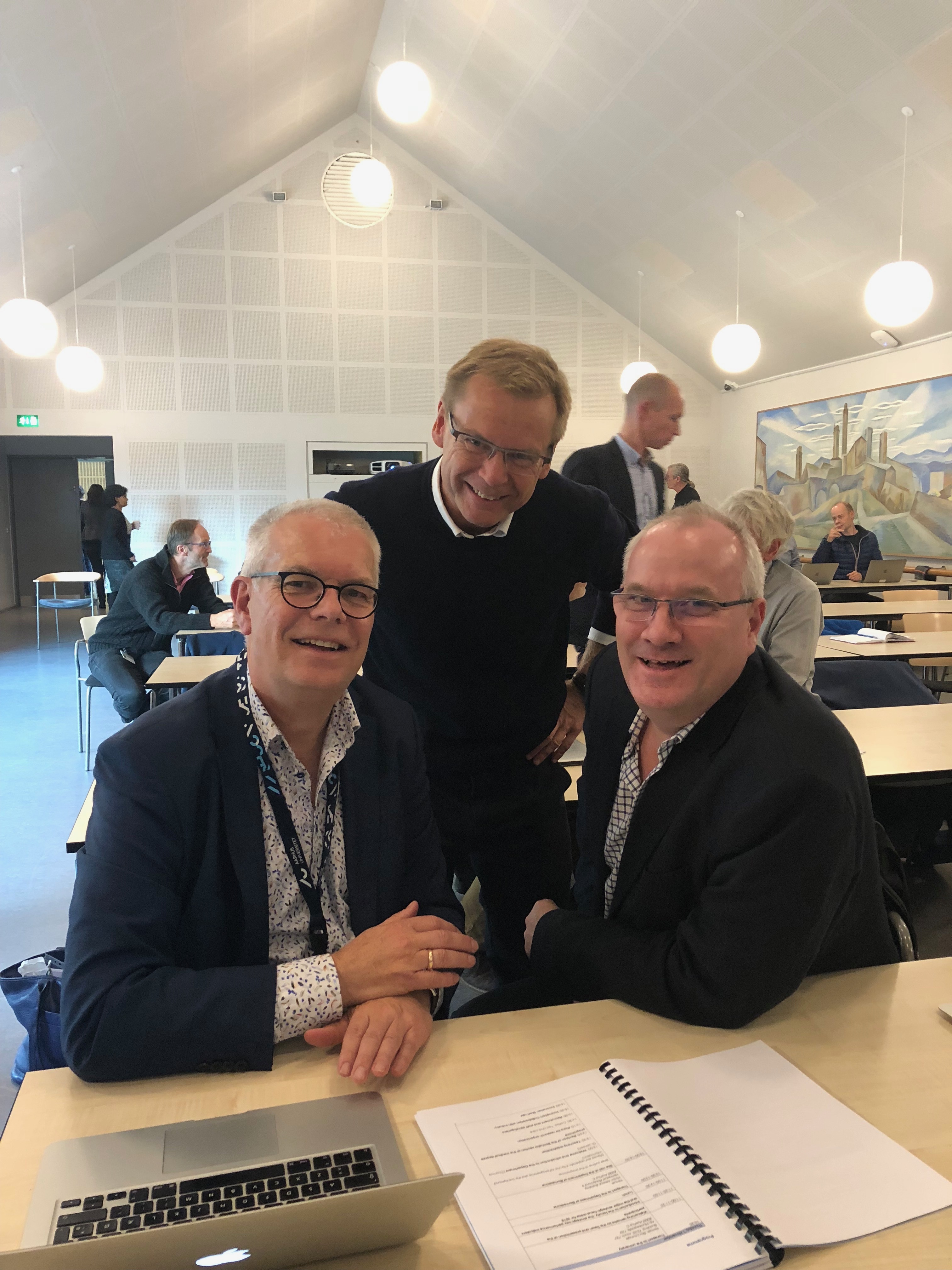Internationalisation is not the answer to everything
"Reach for the stars, also internationally, but do so in a way that still remembers where you came from and make sure all the staff are with you." This was one of many examples of the advice made by Health’s Advisory Board.

The Department of Biomedicine should be characterised by a lively international research environment with English as its preferred language in the lab and at meetings and seminars. One where elite Danish and foreign researchers launch creative research projects and where funding applications are submitted which are interesting because of strong their international collaboration.
This is the dream scenario which as presented a number of times, and there is no doubt that internationalisation is here to stay. But it cannot stand alone, and neither is internationalisation a goal in itself, emphasises Department Head Thomas G. Jensen following the Advisory Board’s recent visit.
"One thought-provoking piece of advice was that the management should think about what signals we’re sending with all our talk about how someone external should come and add quality, but not so much about the qualities we already have," says Thomas G. Jensen.
He will take the subject up in the department management team and discuss the balancing act involved in wanting internationalisation.
Our own people must also be able to apply!
“Of course, I’m pleased with the many enquiries we get from places like England, Germany, USA and Canada when we advertise open professor and associate professor positions. It’s great for us to be attractive for talented researchers from all over the world, but this mustn’t discourage the department’s current employees from applying and trying to move up in the system. We are attractive to foreign researchers precisely because of our high academic level and talented and innovative researchers,” says Thomas G. Jensen.
“Without the researchers who are already here we wouldn’t have anything to attract the foreign researchers with, and that’s something we should bear in mind when we talk of internationalisation as an ideal: That it’s not a question of not choosing our own researchers, and that they must also have career opportunities,” says Thomas G. Jensen.
More effective help for female researchers
Gender distribution was also an area that got the attention of the Advisory Board members who provided feedback for the Department of Biomedicine, in this case in the shape of Professor Mike Shipston from the University of Edinburgh and Peter Kristensen, who was until recently employed at Novo Nordisk.
Both pointed out that there are less and less women the further up the career ladder you go, and both think that there is only one way to rectify this unacceptable loss of female talent: By identifying and implementing mechanisms that promote equal gender distribution.
Do we have the right research pillars?
The department's plans to combine research into four overarching pillars under the headings 'Neurobiology’, 'Infection and inflammation', 'Membranes and cells' and 'Personalised medicine and OMICS’ were also presented to the Advisory Board. The right way to go, according to Shipston and Kristensen, because working with research pillars makes good sense in terms of creating affiliation and interaction.
"However, you must be certain that you have the right research pillars. Think about how they combine with your teaching themes – and with the allocation of resources," said Shipton and Kristensen in rounding up their observations.
Teaching abilities and spinouts that have an effect
The Advisory Board also posed other questions which the department management team could think about and continue to work on. Among others, how the ability to teach should be weighted when recruiting new employees. Including whether the department is interested in their teaching philosophy and can e.g. ask for a demonstration in front of a student audience.
Another curious question concerned the department’s impressive experience with spinouts , where Shipston and Kristensen noted an infectious enthusiasm. They also asked about how the many spinouts can provide value for the department concurrently with the companies moving out, and whether it was possible to maintain the innovative environments in the research groups after a spinout is no longer part of the department.
“We’ve received some really good questions which we can work with – and for that matter also appreciative feedback, so that’s been very constructive. It’s also really good to see that more than eighty employees took the time to participate in the programme," says Thomas G. Jensen.
Contact
Department Head Thomas G. Jensen
Email: thomas@biomed.au.dk
Direct tel.: (+45) 8716 8391
Mobile: (+45) 2778 2805
